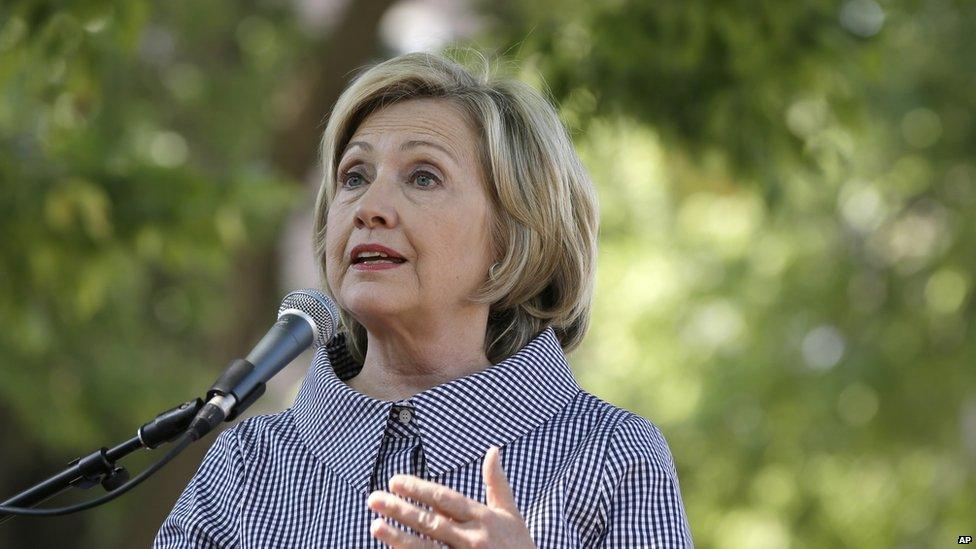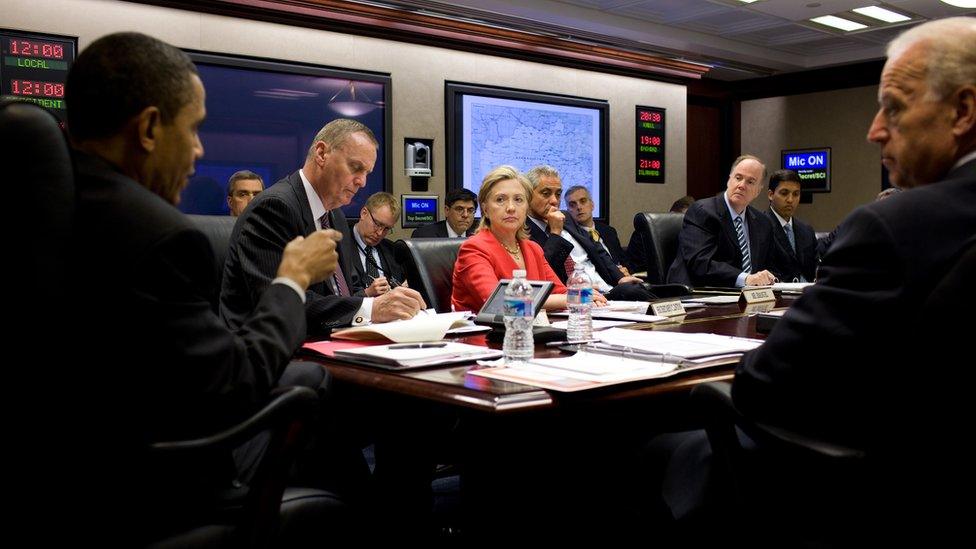Hillary Clinton emails flagged for review
- Published

More than 300 emails from Hillary Clinton's private server are to be reviewed to see if they contain classified information.
The US state department identified the emails as it carries out its check on whether they can be released publicly.
Mrs Clinton's use of private email while secretary of state for four years has sparked a barrage of criticism.
The Democratic 2016 frontrunner says her private email contained nothing that was classified at the time.
Critics say that her set-up was unsecure, against government rules and designed to shield her communications from oversight.
Last December, she handed over about 30,000 emails she sent and received while in office.
A team of officials has been checking the emails since a federal judge ordered they be released to the public on a rolling basis over the next five months.

Clinton says she followed all security guidelines and has made all work emails public
In court papers filed with a US District court judge in Washington on Monday, the State Department updated its progress.
One of its officials told the court that 305 of her emails are being recommended for review by intelligence agencies.
State Department spokesman John Kirby told reporters later that day the review of more emails was "healthy".
"It doesn't mean that all 300 are going to end up at some level of (classification upgrade). I suspect some will and I suspect some won't," he said.
The FBI is investigating whether classified information was improperly sent via the server and stored there.
Under US federal law, officials' correspondence is considered to be US government property.

Why did she do it?
Mrs Clinton says the primary reason she set up her own email was for "convenience" but sceptics say the real reason she did it was because it gave her total control over her correspondence.
How many emails?
According to Mrs Clinton, she sent or received 62,320 emails during her time as secretary of state - she says half of them were official and have been turned over to the State Department.
Was it illegal?
Probably not. Mrs Clinton's email system existed in a grey area of the law - and one that has been changed several times since she left office.
Why the controversy?
It's a big deal because Mrs Clinton is asking the US public to trust that she is complying with both the "letter and the spirit of the rules". Critics on the left and the right are concerned she made her communications on sensitive national security issues more susceptible to hackers and foreign intelligence services.
